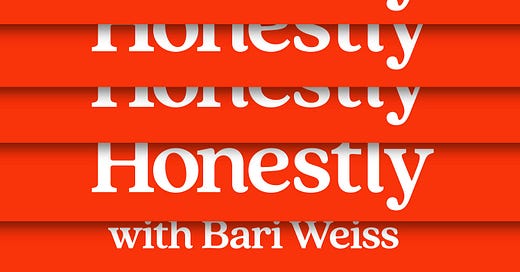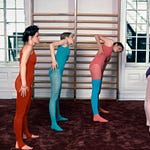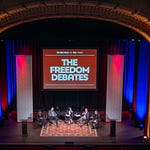In April 1997, Ellen was on the cover of Time magazine declaring, “Yep, I’m Gay.” Then a few weeks later, her sitcom alter ego came out on TV. It was watched by 42 million people. The next year, in 1998, Will & Grace premiered on NBC.
This was a watershed moment for gay representation. Then came: The Pursuit of Happiness, Mad About You, Spin City, Chicago Hope, Melrose Place, NYPD Blue, My So-Called Life, Fired Up, The Crew, Profiler, and High Society—which all started to include gay characters.
The whole decade consisted of landmark moments for gay rights. In May 1996, the Supreme Court decided in Romer v. Evans that Colorado's 2nd Amendment, which denied gays and lesbians protections against discrimination, was actually unconstitutional, and in May 1998, Bill Clinton signed an executive order that made it illegal to discriminate based on sexual orientation in federal workplaces. The gay-rights movement in America was making real progress.
Then, something horrific happened. On a late October night in 1998, in a little town called Laramie, Wyoming, a 21-year-old college student named Matthew Shepard was killed.
The details of the murder were brutal. He was pistol-whipped 18 times, beaten, tied to the bottom of a split-rail wooden fence in a remote part of town, and left there unconscious to die. When he was found, it was said that he looked like a scarecrow. One of the first responders said Matthew’s face had so much blood that the only place you could see his skin was where the path of his tears had fallen and washed away the blood. He died a few days later in a nearby hospital.
In the weeks and months that followed, a narrative took shape. Matthew Shepard was killed by two men who he did not know—Aaron McKinney and Russell Henderson—because he was gay. It was a hate crime, and it was deplorable.
As the news spread, celebrities and politicians around the country spoke out. President Clinton told journalists at the White House, “In our shock and grief one thing must remain clear: hate and prejudice are not American values.” The story of this anti-gay hate crime came to represent the very thing that many gay Americans feared America was at its worst: a place of deep bigotry, where violence against gay people is rampant, where a young man could be targeted and killed simply for being gay, and a country where there are whole cities and towns, maybe even whole regions, where gay people aren’t safe.
The death of Matthew Shepard became the most notorious anti-gay hate crime in American history. “Shepard is to gay rights what Emmett Till was to the civil rights movement,” as New York congressman Sean Patrick Maloney said.
But what if the story wasn’t true? What if Matthew Shepard wasn’t murdered for being gay, but rather for something more common—though equally tragic? And why did so many people refuse to believe it when investigative journalists discovered the truth?
Those were the questions on reporter Ben Kawaller’s mind when he went to Laramie earlier this month, where he interviewed residents, journalists, and former detectives who have a lot to say about the Matthew Shepard case and what really happened. Today, the real Matthew Shepard story and why the full truth is still important.
Learn more about your ad choices. Visit megaphone.fm/adchoices
















When asked about revealing the forsenic evidence that proves Matthew’s death was related to drugs,“Is that worthwhile simply because it may be true” the guy at the pride festival replied, “There’s a point when you as a person should look around and read the room. The understanding of what happened to Matthew means a lot to a lot of people so just leave it alone. Even if there was some amount of drug deal done wrong involved, it doesn’t matter, just read the room.” It is so concerning to me that someone could have so little regard for the truth and would rather live in a comfortable lie than an uncomfortable truth. It seems that many Americans these days have this mindset. It was this conversation that moved me to become subscriber of The Free Press. I am so thankful there are at least a few journalists that care about knowing the truth. Good work FP!
I saved this story because there is so much going on right now but made sure to go back and listen A) because I like Ben and B) I appreciate in general the work of TFP.
The biggest hidden detail I got was that one man never received a real trial. Wow. If this reporting opens up his case then that will be some real world impact.